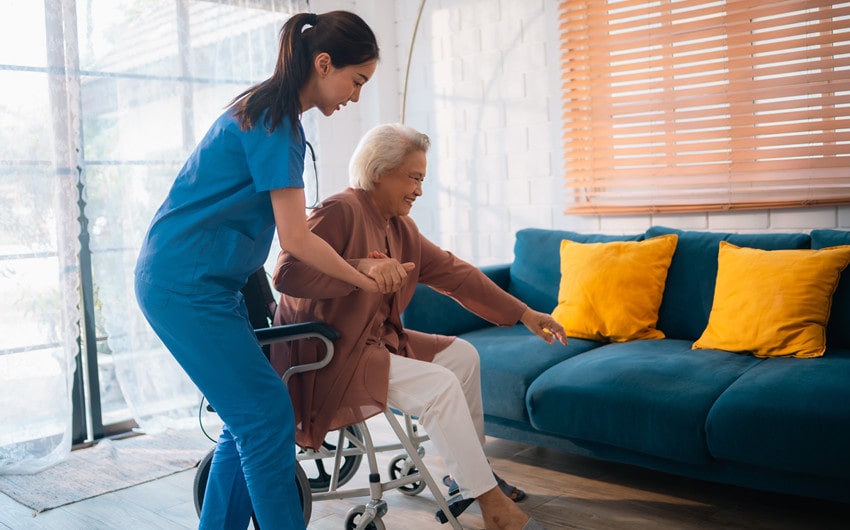6 Essential Skills for Texas Caregivers: How to Enhance Your Ability to Provide Exceptional Care
Caregiving is a demanding yet incredibly rewarding role. For those in Texas, it comes with unique challenges and responsibilities. Whether you’re a seasoned caregiver or new to the field, continually improving your skills is essential. Texas caregivers can benefit immensely from focusing on specific areas of development to provide better care, especially given the state’s diverse healthcare landscape and unique elderly population.
Here, we explore five essential skills to help caregivers enhance their abilities and ensure they provide the highest quality of care.
1. Mastering Communication: The Key to Understanding Needs
Effective communication forms the foundation of caregiving. This skill is more than just speaking or listening—it’s about understanding and responding to the needs of others in a compassionate and clear manner. In Texas, where caregivers may work with individuals from varied cultural backgrounds, adapting communication styles becomes crucial.
For instance, learning a few phrases in Spanish or understanding common gestures can make clients feel respected and understood. Clear communication also minimizes misunderstandings, which is essential when following care plans or discussing health concerns with medical professionals.
Practical Steps to Improve Communication:
- Practice Active Listening: Make eye contact, nod, and repeat back key points to ensure understanding.
- Adapt to the Client’s Preferences: Some clients may prefer direct communication, while others may appreciate a softer approach.
- Engage in Ongoing Education: Many organizations, like the National Institute on Aging, offer resources on effective communication techniques tailored to caregivers.
2. Building Empathy: The Heart of Quality Care
Empathy allows caregivers to connect on a deeper level with those they care for. It’s about understanding another person’s feelings and experiences without judgment. Empathy can significantly improve the quality of care by fostering a comforting, supportive environment.
In Texas, where seniors may feel isolated due to distance from family or limited mobility, an empathetic approach can make all the difference. When a caregiver shows genuine empathy, clients feel valued, respected, and safe.
Tips for Building Empathy:
- Take Time to Listen and Observe: Ask open-ended questions to understand the client’s personal history, values, and fears.
- Put Yourself in Their Shoes: Think about what it would feel like to rely on someone for daily tasks or to face health challenges alone.
- Show Patience and Kindness: A calm, compassionate demeanor goes a long way in building trust and showing empathy.
3. Strengthening Organizational Skills: Managing Tasks Efficiently
Caregivers often juggle multiple responsibilities, from managing medication schedules to coordinating doctor’s appointments and daily tasks. For Texas caregivers who may serve clients in both urban and rural settings, organizational skills are critical.
Efficient management ensures that all necessary care tasks are completed on time, reducing stress for both the caregiver and the client. A well-organized caregiver can also provide better documentation, which is essential for coordinating with healthcare providers and meeting state care standards.
Ways to Improve Organization:
- Use a Planner or Digital Calendar: Scheduling apps can help you track appointments, medications, and daily routines.
- Create Checklists: Outline daily and weekly tasks for each client to ensure nothing is missed.
- Keep Records Organized: Maintain a dedicated folder or binder for each client’s medical information, care plan, and emergency contacts.
4. The Importance of Getting a Caregiver Certification
Obtaining a caregiver certification is crucial for those looking to excel in caregiving within Texas. A certification not only demonstrates a caregiver’s commitment to providing high-quality care but also equips them with essential skills and knowledge tailored to the needs of Texas residents.
With a certification, caregivers learn best practices in areas such as personal care, emergency response, and client interaction, ensuring they’re prepared for various challenges they may face on the job.
In Texas, certification can also enhance a caregiver’s credibility, which is especially valuable when working with agencies or clients who prioritize skilled, certified professionals. Additionally, certified caregivers are often more aware of state regulations and legal requirements, reducing the risk of liability issues and ensuring compliance with Texas-specific standards.
Pursuing a Texas caregiver certification can make a meaningful difference in a caregiver’s career, providing them with the confidence and expertise to deliver exceptional care across diverse settings.
5. Enhancing Physical and Emotional Resilience: Caring for Yourself to Better Care for Others
Caregiving is both physically and emotionally demanding. From lifting or transferring clients to managing emotional stress, resilience is crucial for long-term success in this field.
Texas caregivers, especially those serving clients in rural areas or multiple clients in a day, can experience burnout if they don’t take time for self-care. Developing resilience not only helps caregivers manage stress but also ensures they can provide quality care day after day.
Strategies to Build Resilience:
- Engage in Regular Physical Exercise: Activities like stretching, walking, or even lightweight training can help maintain strength and flexibility.
- Set Boundaries: Don’t hesitate to communicate your limits, and take regular breaks to recharge.
- Seek Support: Join caregiver support groups to share experiences and learn coping techniques from others facing similar challenges.
6. Navigating Texas Regulations and Resources: Staying Informed for Better Care
Caregivers in Texas must be knowledgeable about state-specific regulations, including legal and ethical guidelines, to provide safe and compliant care. Staying informed about changes in healthcare laws, Medicare policies, and elder care guidelines is essential.
Additionally, Texas offers various caregiver resources, such as local training programs, support groups, and respite care services. Knowing where to turn for additional support can ease some of the burdens of caregiving and help ensure that clients receive the best possible care.
Helpful Resources for Texas Caregivers:
- Enroll in State-Approved Training Programs: These can provide valuable skills and certifications.
- Access Support Services: Look into respite care options so you have opportunities to rest.
- Keep Up with Policy Changes: Regularly check state health department websites for updates on caregiving regulations.
Final Thoughts: Elevating Care through Continuous Improvement
Being a caregiver is a noble profession that requires dedication, patience, and a commitment to learning. By focusing on communication, empathy, organization, resilience, and understanding local regulations, Texas caregivers can elevate their level of care and make a meaningful impact on the lives of those they serve.
Continuous improvement isn’t just about becoming a better caregiver—it’s about building a more compassionate and supportive environment for the clients who depend on you.



